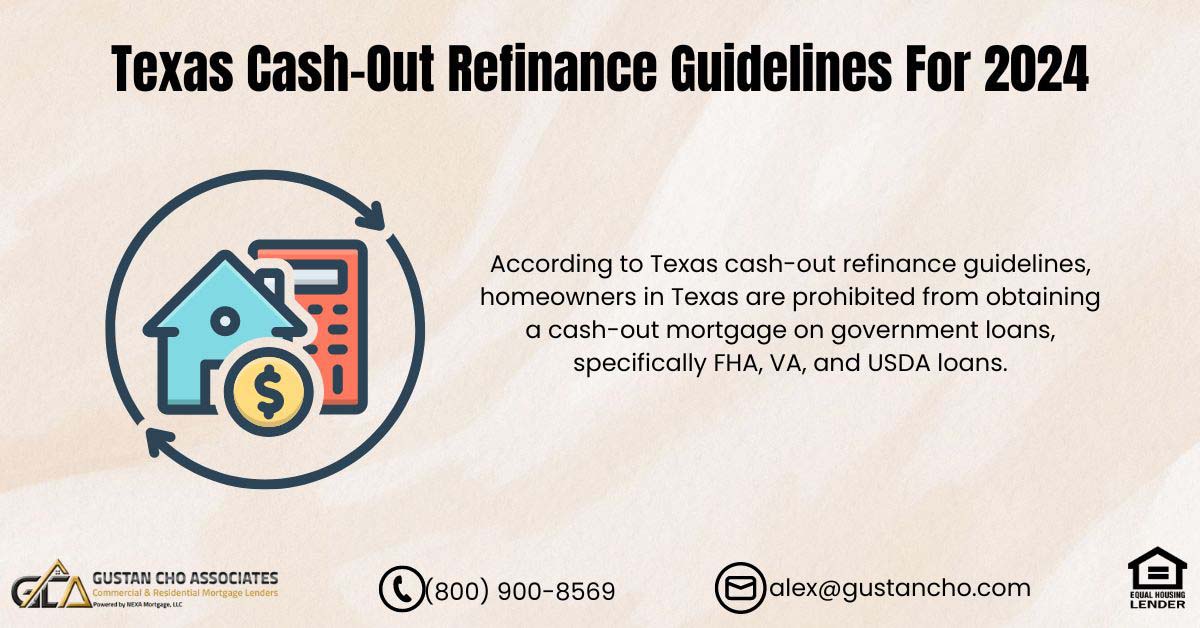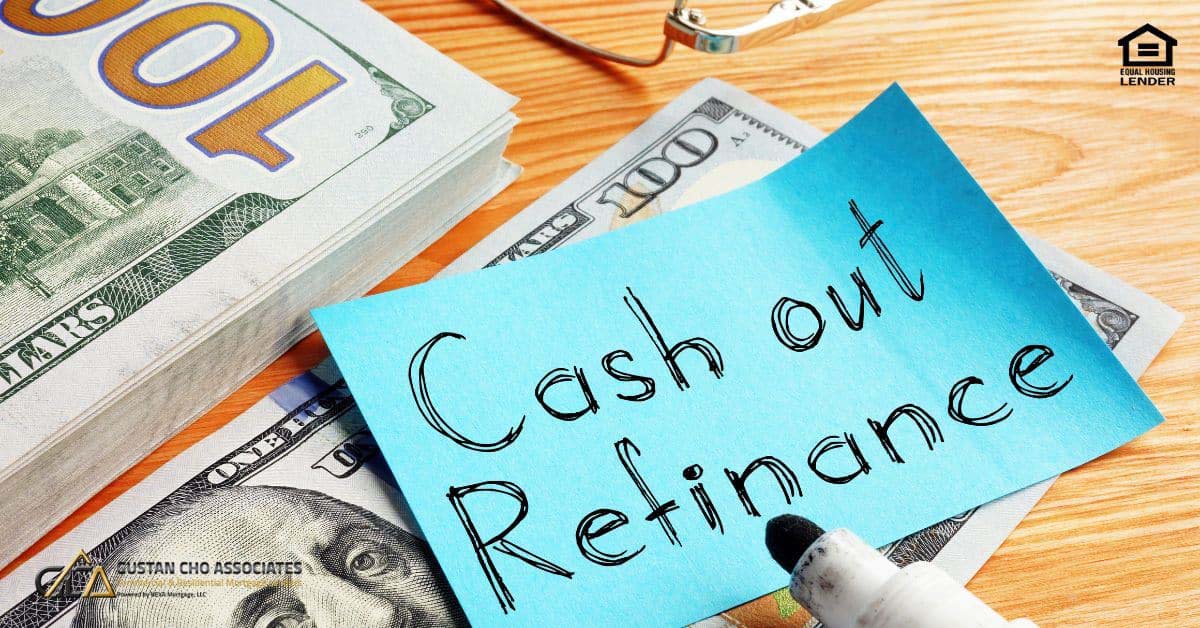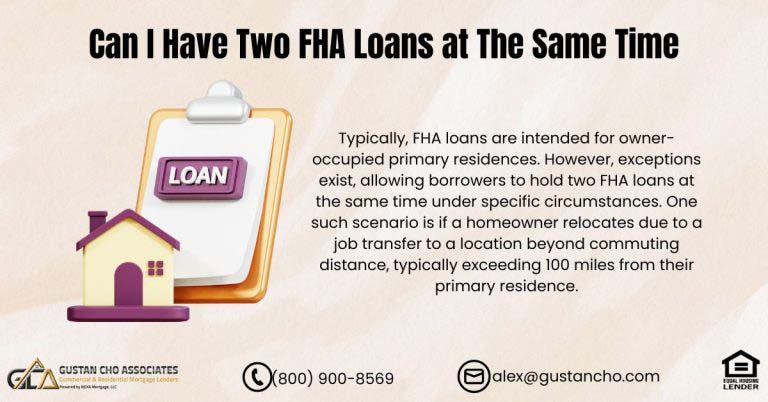This blog post will explore and elaborate on the Texas Cash-Out Refinance Guidelines in home mortgages. Gustan Cho Associates, a team of mortgage brokers, holds licenses in 48 states, specifically including Texas. Operating as licensed mortgage lenders in those same 48 states, Gustan Cho Associates has earned a national reputation for successfully facilitating mortgage loans that many other lenders need help with.
Alex Carlucci, a prominent loan officer at Gustan Cho Associates, emphasizes the distinctive qualities that set the team at Gustan Cho Associates apart from the competition.
Over 80% of our borrowers could not qualify at other lenders because they had tough overlays. We have no overlays. We will help you get qualified and pre-approved for a mortgage loan in Texas. The team at Gustan Cho Associates has access to non-QM and alternative lending programs to get you a cash-out refinance mortgage in Texas.
If you have been following the mortgage market, you know the COVID-19 coronavirus outbreak has created a high-rate environment. The Federal Reserve Board has lowered the interest rate to zero to avoid another Great Recession due to the coronavirus pandemic but did an about-face and increased rates by 0.75%.
What Is Different About Texas Cash-Out Refinance Guidelines Versus Other States
According to the Texas cash-out refinance guidelines, homeowners in Texas are prohibited from obtaining a cash-out mortgage on government loans. This restriction applies specifically to FHA, VA, and USDA loans, meaning that a cash-out refinance mortgage is not permitted for these loan types.
Homeowners in Texas cannot do a cash-out refinance mortgage on FHA and VA loans. You can do cash-out refinance mortgage on conventional and non-QM loans.
Amidst the escalating interest rates, mortgage rates have surged beyond 6%. Despite the challenges posed by soaring inflation and skyrocketing mortgage rates, home prices continue to rise, showing no indications of a corrective trend. The subsequent paragraphs delve into the Texas cash-out refinance guidelines about government, conventional, and non-QM loans.
Ready to Tap Your Texas Home Equity for Cash?
Use a Texas cash-out refinance to pay off high-interest debt, make home improvements, or build savings
The Best Lenders in Texas For Non-QM Mortgage Options at The Best Rates
Gustan Cho Associates are prominent in the state of Texas. Our professional mortgage team has numerous loan programs for residents of the Lonestar state of Texas. In this blog, we will review a few facts about Texas, detail the strict cash-out refinancing rules throughout the state, and explain how to apply for a cash-out refinance with Gustan Cho Associates.
Gustan Cho Associates has a large presence in Texas. We have helped and continue to help thousands of Texans with a home purchase or refinance mortgage loan at the best available rates. The team at Gustan Cho Associates are experts in helping borrowers in Texas with lower credit scores and no lender overlays.
The state of Texas has a long-rooted history well before it was part of the United States. Six separate nations have ruled over the area that is now called Texas. These include Spain, France, Mexico, the Republic of Texas, the Confederate States of America, and now the one and the only United States of America. Gustan Cho Associates are mortgage brokers licensed in 48 states with over 210 wholesale lenders, including over 100 non-QM wholesale lenders.
Does Texas Allow Cash-Out Refinancing?
Texas cash-out refinance guidelines set the state apart from others in the nation. Texas, the second-largest state in the United States, boasts unique regulations distinct from those in any other state. It surpasses the size of any European country, with only Alaska exceeding its vastness. Notably, from 1836 to 1845, Texas existed as its own country, and if it were to regain that status, it would rank as the 39th largest country globally based on land area.
Per Texas cash-out refinance guidelines, you cannot do a cash-out refinance on government loans. Only conventional and non-QM loans. Gustan Cho Associates has hundreds of non-QM loan programs available for Texas borrowers.
In addition to its size, Texas wields significant influence in national politics, being the second most populous state in the union. California is the only state with a larger population than Texas. Texas is notorious for experiencing natural disasters, with recent memories of the ice storms that paralyzed the state last year, causing substantial disruptions to the power grid.
Texas Real Estate Market
The Texas cash-out refinance guidelines are essential for those considering refinancing in the state. Many Americans know that Texas operates its power grid independently, separate from the rest of the country. Texas experiences approximately 150 tornadoes annually.
The housing market in Texas is booming with tens of thousands of new people and businesses moving from high-taxed states. Californians by far are the largest group of migrants moving to Texas. Businesses from New York, California, Illinois, New Jersey, and other high taxed states are seeking refuge in Texas.
Houston holds the title of the largest city in Texas, while Austin serves as the capital. Renowned for its food, music, and entertainment, Austin is one of the state’s fastest-growing cities. Texas boasts Honky Tonks, bars where live country music resonates throughout the night.
Turn Your Texas Home Equity Into Cash—Without Selling
Why stay stuck with credit card balances or personal loans when your home equity can work for you?
Benefits of Buying a House in Texas
Texas is a massive state with tons of entertainment. There are numerous professional sports teams throughout the state. It is no secret that high school football is a major attraction across the state. Texas even has beachfront entertainment located along the Gulf of Mexico. On the west side of the state in El Paso, there is even a manmade surfing wave park.
Besides a booming economy and more jobs than people seeking for work, Texas has affordable housing and has a low cost of living. People in California who were priced out of the housing market are finding they can afford to buy a home in Texas.
There are many other amusement attractions in the state. Texas is home to many exotic animals, such as tigers. It is estimated that there are more tigers in Texas than in areas where they live naturally. On a side note, Texas is also one of nine states nationwide that do not have an income tax at the state level.
How Does The Texas Cash-Out Refinance Guidelines Loan Work?
Why does the process of cash-out refinancing present challenges in Texas? Texas cash-out refinance guidelines, with their unique features, often bewilder numerous mortgage borrowers. Many loan officers need up-to-date knowledge of Texas cash-out refinance guidelines. Implementing the Texas Section 50(a)(6) rule aims to safeguard Texan citizens against property equity stripping.
Texas cash-out mortgage guidelines does not allow FHA, VA, and USDA loans on cash-out refinancing. The maximum a lender can make on a refinance transaction is no more than 2%..
The intricacies of the rule’s language highlight its legal nature. The Texas Section 50(a)(6) rule is a state-specific guideline dictating the parameters lenders must adhere to in cash-out refinance transactions. While this guideline has undergone slight modifications over the years, it can pose a hurdle for readers of Gustan Cho Associates.
Are Cash-Out Refinance Rules Different in Texas?
Texas will only allow a conventional mortgage loan when completing a cash-out refinance transaction. If you are a veteran, you cannot utilize your VA loan to complete a cash-out refinance in Texas as per the Texas cash-out refinance guidelines. The same applies to FHA mortgage lending, and you may only utilize a conventional mortgage loan for any cash-out transaction.
Texas cash-out refinance guidelines restrict mortgage brokers the money lenders can make. The maximum lenders can make on a refinance loan no more than 2% per refinancing transaction.
If you are reading this, you may know that a conventional mortgage loan requires a minimum of a 620 credit score. You cannot manually underwrite a conventional mortgage loan, so you must receive an automated AUS approval (AUS stands for automated underwriting system).
Why Texas Section 50(a)(6) Rule in Mortgage Lending?
The Texas Section 50(a)(6) rule was implemented to prevent malicious lending practices like equity stripping and mortgage churning. Equity stripping refers to wasting your equity paying lender fees when there is not much benefit to the refinance transaction.
Mortgage churning is a cruel practice where lenders repeatedly prey on mortgage borrowers and refinance their homes, collecting unnecessary fees.
For more information on an AUS approval, don’t hesitate to contact our cash-out refinance expert, Gustan Cho, at 800-900-8569. Or email us at alex@gustancho.com.
The Texas Section 50(a)(6) Rule Launched To Protect Borrowers
The Texas Section 50(a)(6) rule was originally implemented to protect mortgage borrowers. There are strict limitations to how much a lender may charge in closing costs. The total closing costs may not exceed 2% of your loan amount.
Texas has special mortgage rules and guidelines because they want to protect consumers.
Please remember that this 2% threshold does not include third-party closing costs such as appraisal fees and title insurance. This portion of closing cost protections will only apply to fees charged by your lender, known as origination and or processing charges.
Texas Cash-Out Refinance Guidelines on Maximum Loan-To-Value
As per the Texas cash-out refinance guidelines, Texas has a maximum loan-to-value (LTV) threshold for all cash-out refinance transactions. All Texans are limited to 80% loan to value for any cash-out transaction. You will need an appraisal to close a cash-out refinance, and you will only be able to have a total loan amount equal to or less than 80% of the appraised value.
Gustan Cho Associates are mortgage brokers licensed in 48 states including Texas. Over 80% of our homebuyers are folks who could not qualify at other lenders due to the lender having overlays on government and conventional loans.
For example, if your house appraises for $500,000, the max loan amount you qualify for would be $400,000 based on the Texas cash-out refinance rules. In this example, if you owe $300,000 on your mortgage, the total available cash-out funds will be $100,000. Please remember that the closing costs will be subtracted from that $100,000 cash-out equity.
Texas Cash-Out Refinance Guidelines on Waiting Period Requirements
Waiting periods. The state of Texas ensures you have been in your current mortgage for at least six months before you can utilize a cash-out refinance transaction.
Texas has strict mortgage rules and regulations where you can not refinance more than once a year. The borrowers needs to have a net tangible benefit in order for them to be able to refinance a mortgage loan.
Also, if you have already completed a cash-out transaction on your property, a full 12 months must elapse before you are eligible for a new cash-out to refinance transaction. This is put in place to prevent equity stripping.
Debt Consolidation With a Texas Cash-Out Refinance
Roll high-interest debt into one lower mortgage payment and simplify your finances
What Is A Texas 50(a)(6) Loan?
Where the Texas Section 50(a)(6) rule hurts the most is waiting periods after a major derogatory credit event such as a foreclosure. Since you may only utilize a conventional mortgage loan for cash-out transactions in Texas, all conventional waiting periods apply.
There is a seven-year waiting period after a foreclosure, a four-year waiting period after a Chapter 7 bankruptcy, and a full two-year waiting period after a Chapter 13 bankruptcy. These waiting periods can damper your mortgage savings you may benefit from refinancing your current loan.
What Credit Score Is Needed For A Texas Cash-Out Refinance?
Suppose you have been reading our mortgage blogs. In that case, we can help borrowers refinance their homes during an active Chapter 13 bankruptcy (before the two-year conventional waiting period).
Other states do not have such strict refinance laws like Texas. There is no restriction on doing a cash-out refinance mortgage on government loans.
We are pleased to announce that a mortgage program in Texas will allow borrowers to pay off their bankruptcy early utilizing a cash-out refinance transaction.
Texas Cash-Out Refinance Guidelines Versus Other States
For borrowers outside of Texas, these transactions are completed based on FHA or VA mortgage guidelines. But in Texas, utilizing a cash-out refinance transaction to pay off your bankruptcy has a slightly different process.
Texas borrowers can do a cash-out refinance mortgage loan with conventional and non-QM loans but not FHA, VA, or USDA loans.
Unfortunately, when I say different, it also means more difficult. Below are some basic qualifications for using a cash-out refinance loan to pay off a Chapter 13 bankruptcy in Texas.
Buying Out Chapter 13 Bankruptcy With Cash-Out Refinance in Texas With Non-QM Loans
To utilize the specialty program available to use a cash-out refinance to pay off your Chapter 13 plan in Texas, you must have a full two-year history of on-time payments to your trustee. This is double the payment history required for FHA or VA lending when paying off a Chapter 13 plan. The maximum loan-to-value allowed for this program is 70%.
Non-QM loans are portfolios that do not conform to government or conventional loans. Non-QM loans have no maximum loan limit or mortgage insurance premium requirements. Non-QM loans is the easiest mortgage loan program available in Texas to do a Chapter 13 Bankruptcy buyout.
This is 10% lower than FHA and 30% lower than VA cash-out refinance programs. Since filing your bankruptcy, no missed payments on any accounts are allowed. During the underwriting process, all payment histories will be verified. No missed payments to the trustee, mortgage, or any other items reporting to credit are allowed. The main kicker for this program is the credit score requirement.
HUD Credit Score Guidelines For FHA Loan During Chapter 13 Bankruptcy
Above and beyond the stricter requirements above, you must have a 640 credit score or higher. Obtaining a 640 credit score during an active Chapter 13 bankruptcy can be difficult. Below are a few pointers for raising your credit score during bankruptcy.
Your trustee/ bankruptcy plan must be paid in full when utilizing this specialty program. We will obtain an official payoff from the bankruptcy court, which must be satisfied. Please remember the strict 70% loan-to-value threshold for completing this transaction.
If you need these criteria and want to pay off your bankruptcy early, don’t hesitate to contact our Texas refinance expert, Gustan Cho, at 800-900-8569 or text us for a faster response. Or email us at gcho@gustancho.com.
How To Rebuild Credit During Chapter 13 Bankruptcy
Tips for raising your credit score during an active Chapter 13 bankruptcy. No missed payments to any creditors. You will need to take out revolving tradelines.
Keeping your utilization well below 30% on the revolving trade lines is critical. Payment history on all accounts is important. Keeping an installment payment outside the Chapter 13 plan can help your credit score.
Try to keep an auto loan outside of your payments to the trustee and make sure these reports are on your credit report.
Need Cash for Repairs, Remodels, or Emergencies?
Use a Texas cash-out refinance to upgrade your home, add value, or cover big expenses
Applying For A Cash-Out Refinance in Texas
Applying for a cash-out refinance in Texas with Gustan Cho Associates. Our team has put together a simple mortgage application process. We know you are busy and want to save you time and frustration when completing a refinance transaction. First, you will call our team directly and have a one-on-one mortgage consultation with a licensed loan officer.
It is important to be as specific as possible during this phone call so we can find the best refinance options available to you. After your initial phone call, you will fill out your loan application.
This application is completed online, allowing our team to verify your credit report. After you fill out your initial application, you must send a list of documents to your mortgage team. Depending on your sources of income and the loan program chosen, these documents will vary.
Documents Required To Start The Cash-Out Refinance Mortgage Process
Some basic documents you should be prepared to upload include your most recent two years of W-2s, 30 days of pay stubs, 60 days of bank statements, and a driver’s license or government-issued photo ID.
If you are currently retired, you will need to send in the verification of your sources of fixed income. Your loan officer will be able to answer any questions about the required documentation. The next steps will be going over your customized refinancing options. Once you and your loan officer agree on your best option, the loan process will officially start.
The loan process will take approximately 30 to 45 days from start to finish. The longest part of the process will be having your home appraised. Since the real estate market is so hot, appraisals are taking longer than usual.
While waiting for your appraisal, your file will be sent to the underwriting department. They will let us know if any further documentation is required from you. Once we have your appraisal, required verifications, and complete title work, you will be issued a clear to close! For more information on refinancing, don’t hesitate to contact Gustan Cho Associates today.
Best Texas Lenders For Cash-Out Refinance Loans
Gustan Cho Associates are experts in mortgage lending throughout the country. Our team stays current on state-specific rules and guidelines as we continue to grow in our licensed states. We understand that the Texas cash-out refinancing guidelines are confusing.
Please reach out directly to go over your specific refinance qualifications with one of our licensed loan officers. We strive to stay current on the constantly changing mortgage guidelines and market conditions during these crazy economic times. The housing market forecast for 2024 is expected to remain strong. The coronavirus pandemic has changed the way we work. Many companies have transferred their employees to become remote wage earners due to the coronavirus pandemic.
Remote employees are a huge saving for employers because it saves them for brick-and-mortar rent. Remote workers are not tied up to a certain city and state. Remote workers can live in any state they choose. This is a great benefit for remote workers to escape high-taxed cities like New York City, San Francisco, and Los Angeles to other low-taxed cities/states with affordable housing.
Inflation and Surging Rates Not Putting a Dent on The Texas Housing Market
Most financial experts agree homeownership is one of the strongest tools to combat inflation. We look forward to helping you buy a home or save money by refinancing your current mortgage. We encourage you to reach out to our team for any mortgage information. If we do not know the answer, our team is dedicated to researching guidelines and getting you accurate information.
We are headed into some tough financial times if you follow financial news. Refinancing your home paying off high-interest credit card debt, a Chapter 13 bankruptcy, or even utilizing cash-out funds as reserves may help the turmoil we are headed into.
The housing market forecast for 2024 is expected to remain strong despite the high unemployment rate due to COVID-19. Except for blue Democrat-led states, housing prices are expected to increase. Due to rising home prices, HUD and the Federal Housing Finance Agency (FHFA) have increased FHA and Conventional loan limits for 2024. The mortgage industry had a very strong year in 2024, mainly driven by the refinance mortgage market.
Mortgage Rates For Home Loans in Texas For 2024
Many Americans have already taken advantage of refinancing their home loan to a much lower interest rate. This is the time if you have not capitalized on this low-rate environment. In this blog, we will detail how to refinance your home in Texas. There are very specific guidelines for Texas Cash-out refinance transactions. We will also explain how to apply to refinance your loan with Gustan Cho Associates.
Texas Cash-Out Refinance Guidelines Versus Other States
Texas is different from any other state in the nation regarding cash-out refinance laws and guidelines: The great state of Texas has a few refinance rules that do not apply in other states.
These rules are put in place for a very specific reason trying to protect its citizens from equity stripping their property. Equity stripping means constantly taking cash out of your primary residence and not paying down the amount you owe.
This is considered a predatory lending practice. These laws were put into place years ago and remain in effect today. The Texas cash-out refinance rules are often referred to as Texas (a)(6) because the law comes from section 50 (a)(6) of Texas. Constitution.
Texas (a6) Cash-Out Refinance Loan Rule
This law was amended in November 2017. The result is after completing a Texas (a)(6) cash-out refinance loan is completed, Texas residents can now complete a rate and term refinance without an additional loan level pricing adjustment (LLPA). The old rule considered each refinance after a Texas (a)(6) cash out, always a cash-out transaction, even if you were not pulling additional funds row.
Texas Rate and Term Refinance
Texas residents can complete a rate and term refinance even if they have completed a Texas (a)(6) home equity loan in the past. We will go into this in more detail later in this blog. Texas (a)(6) rules were implemented to prevent equity stripping of a primary residence. Texas (a)(6) law prevents a Texas resident from completing more than one cash-out transaction in 12 months. Meaning if you complete a Texas (a)(6) cash-out refinance transaction, you must wait at least 12 months before you are eligible to enter another Texas (a)(6) cash-out refinance transaction.
Texas Cash-Out Refinance Guidelines And Eligibility Requirements
Basic qualifications for a cash-out refinance in Texas. Conventional (FANNIE MAE or FREDDIE MAC only):
- 620 middle credit score
- The maximum loan-to-value is 80%
- Maximum debt to income ratio 45% (sometimes can be stretched to 49.99%)
- No mortgage insurance required
- Must be four years discharged from a Chapter 7 bankruptcy
- Must be two years discharge from the Chapter 13 bankruptcy
- Must be seven years seasoned from a mortgage foreclosure
- It must be four years season from a short sale
- Must receive automated approval from the automated underwriting system (AUS)
Texas has one of the hottest housing markets in the United States. Many residents from other high-taxed states like New York, Illinois, and California are fleeing to Texas due to the low cost of living.
Work With Texas Cash-Out Refinance Experts
Texas has unique cash-out laws—don’t trust your equity to a lender who doesn’t know the rules
Texas Cash-Out Refinance Guidelines On Government Versus Conventional Loans
Texas has different cash-out refinance mortgage guidelines than other states. As mentioned above, you may only utilize a conventional mortgage for a Texas (a)(6) cash-out refinance.
Texas state law mandates FHA, VA, and USDA loans are not permitted to do cash-out refinance in Texas.
FHA, VA, and USDA loans are not permitted under section (a)(6). Texas cash-out rules only apply to primary residences. You may use standard conventional cash-out guidelines for qualifications if you have a second home or investment property. FHA, VA, and USDA loans are only eligible for primary residences.
Texas Cash-Out Refinance Guidelines on Costs To Borrowers
2% FEE rule:
The Texas(a)(6) rule also limits the fees a lender can charge for the transaction. This is also put into effect to prevent price gouging for the citizens of Texas. The lender may only charge up to 2% of the total loan fees for the transaction.
Lenders cannot charge more than 2% of the mortgage loan amount in total fees for a transaction. If lenders go past this 2% maximum compensation, it will violate high-cost rules for the state.
Certain items, such as the appraisal and title fees, are not included in this 2%. 2% is strictly capped, and lender fees may not exceed this threshold. This can be an issue for smaller loan amounts. A Texas (a)(6) cash-out refinance with a loan amount under $100,000 may run into high-cost problems. Contact us for more information on the 2% FEE rule.
Mortgage Guidelines on Cash-Out Non-QM Loans
We offer a full slate of NON-QM mortgage products. NON-QM mortgage products CAN be used to complete a Texas (a)(6) cash-out refinance. Please remember that the 2% rule still applies, and NON-QM loans have higher fees, so the loan amount usually needs to be above $175,000. NON-QM loan products are a great way to reset financially if you don’t fit into traditional lending guidelines. Mike Gracz is the NON-QM expert. Please reach out directly with any questions!
Rate And Refinance Guidelines In Texas
A brief explanation of Texas (a)(6) rule amendment. In November 2017, the Texas constitution was amended to allow rate and term transactions even after a closed Texas (a)(6) mortgage. This is a change to the rule. This takes out a loan-level price adjustment for those looking to complete a rate and term transaction.
Closing and funding a refinance transaction with Gustan Cho Associates has never been easier. We have a seamless online application process. The first step to refinancing your property is to call us at Gustan Cho Associates at 800-900-8569 or text us for a faster response. Or or email us at gcho@gustancho.com. You will have a one-on-one refinance consultation going over your specific refinance transaction.
For more information on this amendment. Please reach out to Gustan Cho at 800-900-8569. Text us for a faster response. Or email us at alex@gustancho.com.
Surging Home Prices Benefit Texas Homeowners with Equity
There are numerous different ways to put your equity to work for you. Mike will be able to go over some of the situations. Paying off a high-interest credit card or personal loan with equity in your property may make sense.
The team at Gustan Cho Associates are experts in helping homeowners do cash-out refinance with government, conventional, and non-QM loans. We can also help homeowners get second mortgages and HELOCs.
Depending on your situation, this can save you hundreds, if not thousands, of dollars a month. It is important to understand that mortgage interest is also tax-deductible. With a change coming to our federal government, tax write-offs may change. Please contact your CPA for more information on tax-deductible mortgage interest.
Documents Required To Start The Mortgage Process
After your initial consultation, Michael will send you an application link. After completing the application link, you upload the required documentation. Below are the documents you can expect to upload:
- Driver’s License
- Last 30 Days of Pay Stubs
- Last Two Years’ Tax Returns (not always required)
- Last Two Years, W2 or 1099s
- Mortgage Statement
- Homeowners Insurance Policy
Once Mike receives your full application and documentation, he will verify your credit report and go over that with you line by line. Assuming everything checks out, you will be sent a loan disclosure package. After completing your loan disclosure package, your loan team will order the appraisal and start the refinance process. Please see our blog on the LOAN PROCESS for more information.
Contact Us To Get Pre-Approved For A Home Mortgage in Texas
The team at Gustan Cho Associates has a national reputation for being a one-stop mortgage shop. Besides not having any lender overlays on government and conventional loans, Gustan Cho Associates offers non-QM and alternative mortgage programs.
Gustan Cho Associates are mortgage brokers licensed in 48 states, including Washington, DC, Puerto Rico, and the U.S. Virgin Islands. We have a lending network of 210 wholesale mortgage lenders including dozens of non-QM and alternative financing lenders.
Some of our most popular loan programs include bank statement mortgages, non-QM mortgages one day out of bankruptcy or foreclosure, asset-depletion loan programs, fix and flix loans, and dozens of other non-QM loan programs.
Qualify and Get Pre-Approved at Gustan Cho Associates: One-Stop Mortgage Broker
Gustan Cho Associates is available seven days a week. We are even available on most holidays. When refinancing your home, you want to trust a professional mortgage team. As you can tell from our articles, we are up to date on all mortgage guidelines.
Many lenders do not understand the nuances of Texas (a)(6) cash-out refinance transactions. Our specialty is to help homeowners in Chapter 13 Bankruptcy repayment plan to do a cash-out refinance and do a Chapter 13 Bankruptcy buyout.
If you have any questions about this article on Texas cash-out refinance guidelines or need to qualify and get pre-approve, please get in touch with us at Gustan Cho Associates at 800-900-8590 or text us for a faster response. Gustan Cho Associates has no lender overlays on Texas cash-out refinance guidelines. We are experts on government, conventional, and non-QM loans. The team at Gustan Cho Associates is available seven days a week, evenings, weekends, and holidays.
FAQ: Texas Cash-Out Refinance Guidelines For 2024
- 1: Why is a cash-out refinance challenging in Texas? Cash-out refinancing in Texas is challenging due to the unique Texas Cash-Out Refinance Guidelines, specifically the Texas Section 50(a)(6) rule, implemented to protect residents from property equity stripping.
- 2. What sets Gustan Cho Associates apart in facilitating mortgage loans in Texas? Gustan Cho Associates stands out for holding licenses in 48 states, including Texas, and has earned a national reputation for successfully facilitating mortgage loans, particularly for borrowers facing tough overlays at other lenders.
- 3. How have rising interest rates impacted the mortgage market, especially in Texas? The COVID-19 pandemic led to a high-rate environment, prompting the Federal Reserve Board to initially lower interest rates to zero. However, a subsequent increase by 0.75% created challenges, particularly in Texas.
- 4. What are the restrictions on cash-out refinances for government loans in Texas? According to Texas cash-out refinance guidelines, homeowners in Texas are prohibited from obtaining a cash-out mortgage on government loans, specifically FHA, VA, and USDA loans.
- 5. How does the Texas Section 50(a)(6) rule protect borrowers in cash-out refinance transactions? The Texas Section 50(a)(6) rule is a state-specific guideline that aims to protect Texan citizens from equity stripping their property, preventing malicious lending practices.
- 6. What are the waiting period requirements for cash-out refinances in Texas? Texas imposes waiting periods, requiring homeowners to be in their current mortgage for at least six months before utilizing a cash-out refinance transaction. Additionally, there’s a restriction on refinancing more than once a year.
- 7. How do the Texas cash-out refinance guidelines differ for conventional and non-QM loans compared to government loans?Texas cash-out refinance guidelines allow cash-out refinance on conventional and non-QM loans, but prohibit it on government loans like FHA and VA.
- 8. What are the costs associated with a Texas cash-out refinance, and what is the 2% fee rule? The 2% fee rule limits the fees a lender can charge, ensuring they do not exceed 2% of the total loan amount. This rule aims to prevent price gouging and protect Texas citizens.
- 9. How do recent amendments to the Texas (a)(6) rule impact rate and term refinance transactions? The November 2017 amendment allows rate and term transactions even after a closed Texas (a)(6) mortgage, eliminating a loan-level price adjustment for those seeking to complete a rate and term transaction.
- 10. How can homeowners utilize their equity in a surging housing market, and what benefits does a cash-out refinance offer?Homeowners can leverage their equity through a cash-out refinance, gaining funds to pay off high-interest debts, invest, or make home improvements. The surging housing market further enhances the potential benefits.
- 11. What documents are required to start the mortgage process for a cash-out refinance in Texas with Gustan Cho Associates?Basic documents include a driver’s license, last 30 days of pay stubs, last two years of tax returns, last two years of W2s or 1099s, mortgage statement, and homeowners insurance policy.
This blog about Texas Cash-Out Refinance Guidelines For 2024 was updated on March 1, 2024.
Take First Step Toward Making Your Dream A Reality
Apply Now And Get recommendations From Loan Experts













We are in a chapter 13 we made our first payment but are falling behind due to the issues with stimulus payments
Hi,
Home in New Jersey – below 550k
Goal – the loan around 420k, down payment up to 20-25% or even more if necessary.
My salary 128k (w2)
Salary Wife approx 65k (w2)
My wife has a company as well but not much income…
2 properties in Florida as a rental income – 1 renting since 2014, the second renting since Nov 2019.
In NJ we are living in renting the house
My wife has a 748 credit score – and I was around 600.
Today I signed for MyFico reports for all 3 agencies:
It looks that for mortgage purposes my score is 611.
It looks that paying around 8k will take me to the 640 and above..
Issue late payments with credit cards, and collections.
All 2 mortgages paid on time – no issue as well the lease cars.
Can you help with mortgage?
Thanks,
Gary Powell
Having read this I believed it was extremely enlightening. I appreciate you finding the time and energy to put this content together. I once again find myself personally spending a lot of time both reading and posting comments. But so what, it was still worth it! I reside in Oregon and am wondering if you are licensed in Oregon? We are set to be discharged in September but need to make a balloon payment to be finally finished with our bankruptcy. Our home is worth $500 and our refinance needs to be $253,860. We are on a tight timeline as we need it done by September. Is this something you can help us with? Thank you.